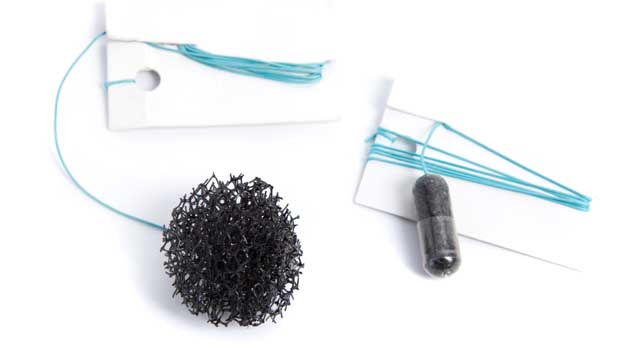Sponge on a String Detects Precursor to Esophageal Cancer
Posted on 28 Feb 2024
Esophageal cancer, which affects the food pipe, is a major cause of cancer deaths, ranking as the fourth highest in men and seventh in women. Its incidence is increasing, linked to risk factors like poor diet, smoking, alcohol use, and having a hiatus hernia. People with Barrett's esophagus are at a heightened risk for developing esophageal cancer. Endoscopy, a procedure involving a tiny camera inserted into the body, is used to diagnose various cancers, including those of the colon and stomach. Now, an innovative "sponge on a string" device coupled with a laboratory test can detect Barrett's esophagus, a precursor to esophageal cancer, offering a way to reduce the long waiting times for essential diagnostic tests.
The National Health Service (NHS, London, UK) conducted a trial of the "cytosponge," demonstrating its effectiveness in reducing the need for endoscopy. The cytosponge, a capsule about the size of a standard tablet, expands in the stomach once swallowed with water. It is then retrieved by pulling the attached string, and collecting cells for analysis to determine the presence of Barrett's esophagus. A simple antibody test then allows pathologists to easily spot signs of the precancerous condition. In a study involving 2,550 out of 8,500 patients tested with the cytosponge, it was found that 78% did not have Barrett's esophagus, allowing them to be monitored by their general practitioner instead of undergoing an endoscopy.

The trial also found that only 22% of those tested, who were at higher risk, required an endoscopic examination. This can not only speed up access to endoscopy for patients suspected of having higher-risk conditions but also significantly advance early cancer detection. The cytosponge is particularly appealing as it is quicker, less invasive, and more cost effective than traditional endoscopy. Experts believe this method could lead to earlier diagnosis of esophageal cancer, potentially reducing the need for late-stage treatments like chemotherapy and surgical removal of the esophagus.
Related Links:
NHS













